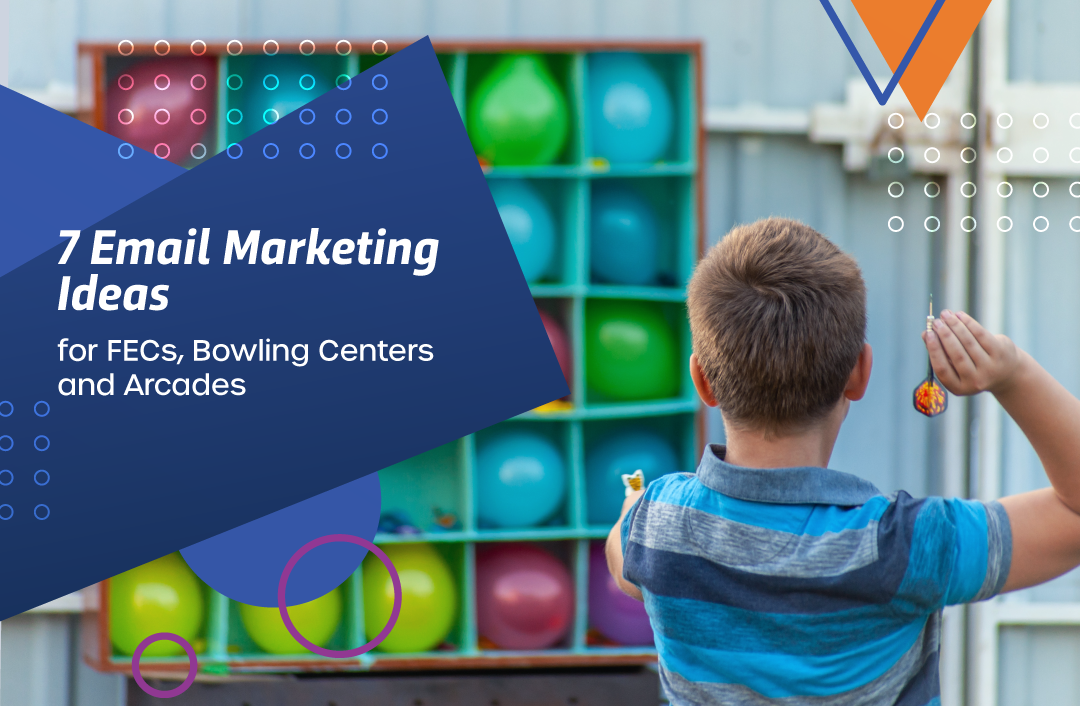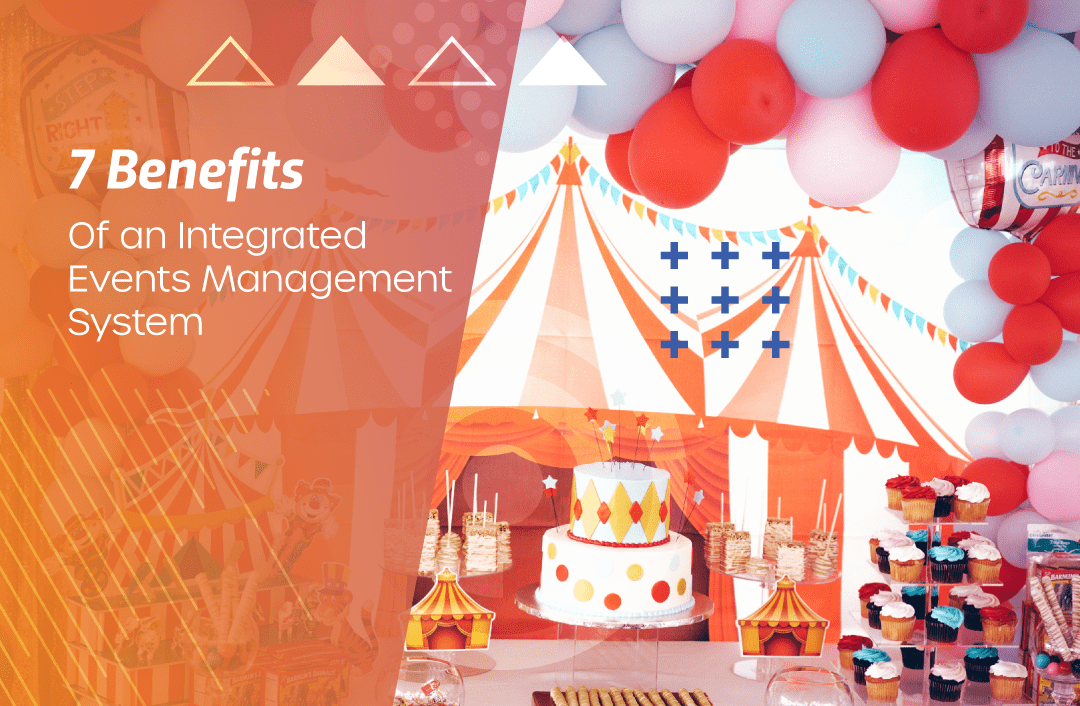Seamless scheduling, accurate accounting, and flawless food and beverage management are just a few of the advantages of an integrated events management system.
Managing every detail of your facility’s event business can feel like a circus where you’re struggling to keep everything moving.
This stress is compounded if you’re spending valuable time trying to manage event details, scheduling, ticketing, payment, and food service in many different systems, or worse – on paper.
An events management system that’s fully integrated with the rest of your overall facility management solution can save you headaches and precious time. But what does integrated really mean? Read on for seven ways you can streamline your events program with an integrated system.
No. 1: Efficient administration
An integrated events management system streamlines the administration of events by centralizing all critical functions in one platform, making it easier to manage every aspect of event planning and execution. From capturing and tracking agreement signatures digitally to managing event milestones for simplified task management, an integrated system is a must for a seamless and consistent experience every time.
No. 2: Enhanced admission control
One of the biggest challenges you may face if your events system isn’t integrated is the potential for overbooking attractions and causing service hiccups for your guests. An integrated system allows you to establish capacity controls so you can schedule attractions, rooms, and resources with every type of guest in mind.
It’s important to provide guests a seamless buying experience, whether they’re booking an attraction or event online, in person, or on the phone, without creating the friction points of double-booking or long wait times due to constantly sold-out attractions. When your systems are integrated, admissions are taken out of your inventory in real-time, so there is no chance for overbooking. You can determine your facility’s attraction and events schedules to maximize throughput and manage walk-in, advance-purchased, and event tickets seamlessly.
No. 3: Consistent party flow
Capacity and admission management for attractions, rooms, and resources is just part of a successful party experience. An integrated system can help you manage your party flow by automatically scheduling events with attractions in the order of your predetermined order. Automating this process allows you to systematize your party flow so that you can operate as efficiently as possible.
For example, let’s say you’re offering a two-hour event where guests play laser tag or VR first, then play a minigolf challenge, before moving into a party room for food and fun; ultimately ending in your game room so that staff can prepare the vacated room for the next event. The schedule can be configured to automatically reserve each attraction or area in your facility so that every event follows a streamlined flow that you can replicate each time, with room for clean-up and resetting.
No. 4: Perfectly-timed food and beverage delivery
Whether you’re running a birthday party or an adult social event, it’s imperative that your schedule goes smoothly and everything happens when your guests expect it. And that goes double for food. The last thing you need is a horde of “hangry” guests waiting for their delayed food order.
A solution that combines your food service, point of sale, and events management processes remedies all that through automation. You configure your event packages to include scheduled attractions, rooms, and food service and set the timing for when the pizza or appetizer order is automatically sent to the kitchen so that it makes it to the party room at precisely the right time. This approach allows you to manage a consistent party experience time after time, eliminating the possibility of delays in ordering if a host forgets or is delayed when submitting the order.
Having a consistent process can also help you when upselling add-on pizzas, pitchers, appetizers, and more in advance of the event. Simply share with your party parent or client that preselecting food and beverage will ensure that everything comes out on schedule and accurate without anyone having to scramble at the last minute.
No. 5: Easier attraction and player card management
Many operators issue player cards or wristbands for things like attractions and gameplay. An integrated system allows you to save time preparing for an event by bulk-issuing ten or more cards so that they’re ready to go when your guests arrive.
Later, while event attendees are enjoying their attractions or gameplay, you don’t want to interrupt their fun to collect cards if the party client wants to purchase additional value or attraction entitlements before ending the event. This is another problem that goes away with an integrated system because you’re able to easily upsell add-on play, which can be loaded onto their cards or wristbands while they’re in use in your facility.
No. 6: Guestlist and waiver management
The event welcome process can be stressful if you are trying to check-in guests and determine which party they’re on-site for, verify liability waivers, and determine how many additional attendees you need to add to a final invoice. An integrated system allows you to link every aspect of an event together. For example, in Advantage Groups, party parents can email electronic invitations with liability waiver links to guests. When guests RSVP, their responses and completed waivers are automatically connected to the event, making it easy for staff to confirm attendance and add guests, as necessary.
No. 7: Streamlined staffing
A system that’s integrated with your POS and time clock means that you can preassign staff to specific parties and print or email a list of the parties that a host will work that weekend. This reduces the number of questions you get because hosts won’t have to ask you what parties they’re working. And, your hosts can get a jump start wowing party parents by getting to know the guests of honor, upsells, and interests while conducting party prep calls in advance. Then they’re starting a party off ahead of the game when guests arrive.
At party closeout, you’re able to see in the system which hosts were assigned to a specific party. Then you can allocate the gratuity amount to them or to the party team as you see fit.
One additional benefit is that if you’re using a business intelligence tool, such as CenterEdge Business Intelligence, you can review top performers based on party averages and gratuities.
No. 8: Accurate accounting
Messy accounting is a headache that no one wants. Events are likely a large part of your business, and trying to operate them with several systems means you could be missing deposits or payments for add-ons if you’re having to manually input from one system into another to track and collect payment.
Also, many operators want to be able to gauge the health of their party programs as a whole and also in each individual revenue center, such as food and beverage, attractions, and merchandise. All of this is made possible when using one system that serves as the single source of truth for revenue in your facility.
These are just a few of the integrated events management system benefits that can save you time, money, and headaches.
Interested in seeing how CenterEdge can help streamline your events management operation? Schedule your personalized demo now.
Search Resources
Subscribe to Email Updates
Featured Resources
Blogs //
7 Email Marketing Ideas for FECs, Bowling Centers, and Arcades

Blogs //
5 Event Types that Can Win Big For Your FEC

News //
CenterEdge Welcomes John Keys as Sales Director

Blogs //
How to Protect Your FEC’s Brand

Posts by Topic
- Advantage Payments (7)
- Brand Management (19)
- Business Growth (81)
- Capacity Management (2)
- CenterEdge News (28)
- Client Interviews (8)
- Credit Card Processing (3)
- Data & Reporting (12)
- Digital Signage (1)
- Event Management (20)
- Facility Management (10)
- Food & Beverage (8)
- Guest Experience (34)
- Guest Management (20)
- Holiday Season & Promotions (5)
- Industry Events (10)
- Inventory Management (1)
- Loyalty Programs (8)
- Marketing Tips (24)
- Operations (1)
- Point of Sale (10)
- Product Launch (11)
- Productivity (5)
- Profitability (35)
- Redemption Management (1)
- Sales (35)
- Season Passes (1)
- Team Training (60)
- Waivers (2)

Leave a Comment